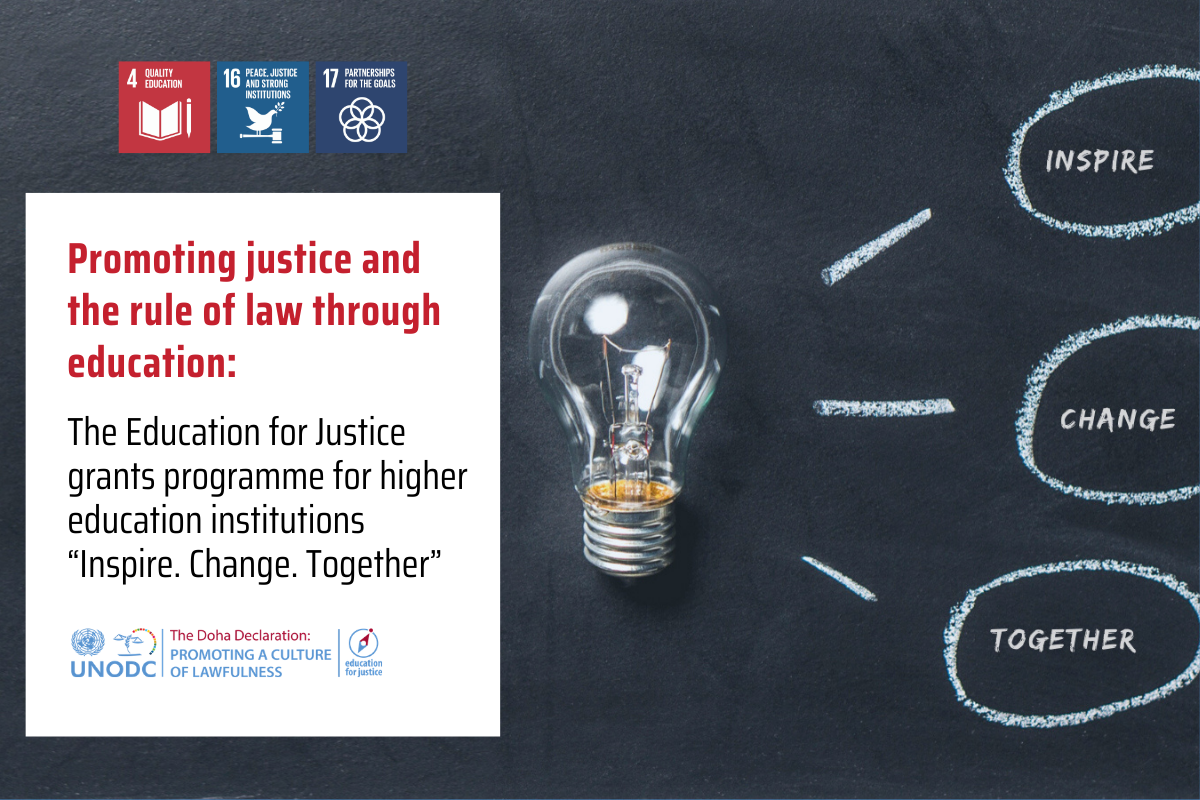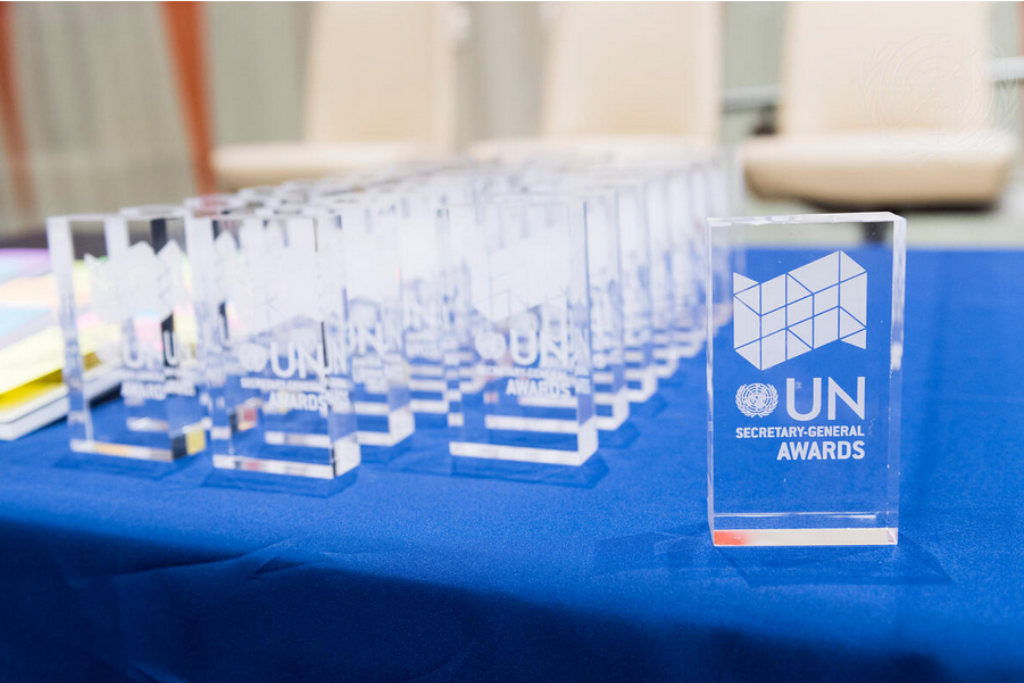To successfully promote sustainable development, global education partnerships are essential

04 October 2019 - The maintenance of peaceful and inclusive societies is at the core of Sustainable Development Goal 16 (Peace, Justice and Strong Institutions), a mission to which UNODC has been committed for over two decades, and which entails imparting the fundamental basics of rule of law at every level of society and for children at every stage of their formal education. The latter is the sole purpose of the Education for Justice (E4J) initiative, a component of UNODC's Global Programme for the Implementation of the Doha Declaration, whose resources on quality education in these and other matters, as defined in Sustainable Development Goal 4, have been helping strengthen young people's resilience to crime and helping them form a positive sense of identity and belonging.
Having developed a varied portfolio of educational tools and materials aimed at reinforcing the capacity of teachers and educators around the world, and already enjoying sustained success through their insertion in the programmes of numerous Member States and institutions, E4J is also focusing on enhanced international cooperation and global partnerships to expand the scope and spread of these accomplishments, as specified by Sustainable Development Goal 17.
 This was the theme of a distinguished panel discussion E4J held last week at the sidelines of the United Nations General Assembly in New York City, with dozens of academics, diplomats and policymakers in attendance.
This was the theme of a distinguished panel discussion E4J held last week at the sidelines of the United Nations General Assembly in New York City, with dozens of academics, diplomats and policymakers in attendance.
Introducing the session and the panelists, Ambassador Alya Al Thani, Permanent Representative of the State of Qatar to the United Nations, explained that "the effective prevention of violence and the promotion of justice must look at youth as agents of positive change. If young people are to uphold the rule of law, then education can empower them to do so, especially if they have more knowledge about the complex issues related to crime, justice and violence."
With the difficulties faced around the world to provide a formal education for many children, the availability and facility of use of E4J's resources was considered to be a particularly strong factor for all the panelists. As observed by Monika Froehler, CEO of the Ban Ki-moon Centre for Global Citizens, "teachers worldwide now have resources to draw on to teach the rule of law, thanks to UNODC and Qatar." Maria Maras, Associate Professor at John Jay College of Criminal Justice, fully agreed: "Education for Justice fills a critical need gap in education, by providing open source materials on key issues."
|
In applying these resources and the values they presented, panelists also made the important point that it was necessary to take a wide-angle lens view of the mission to spread lawfulness; all needed to understand that education concerned everyone, not just educators and students. "We must empower communities to solve common challenges," remarked Luis Carrilho, Police Advisor at United Nations Police, "because re-establishing peace and education are mutually reinforcing." This need to have a holistic approach was echoed by Alina Peter of the Grumeti Fund, as she stressed that "inclusive decision-making is key to promoting the rule of law, and for our conservation efforts."
The panel brought together the three important and intertwining topics of education, the rule of law and partnerships, and it also focused on the role of the younger generation in impacting its own future. "The Doha Declaration is an innovative landmark, recognizing the power of youth to promote the rule of law," said Major-General Abdullah Al Mal, Advisor to the Prime Minister and Minister of Interior of the State of Qatar. "That is why we are looking forward to continuing our excellent partnership and collaboration with UNODC in implementing the Doha Declaration."
Concluding with a similarly positive outlook, Marco Teixeira, Senior Programme Officer and Global Programme Coordinator, noted: "The synergies that we establish today are a fundamental part of E4J's success in advancing the ambitious goals of our Global Programme. With our valued partners, we are committed to continuing promoting values of lawfulness, and to forming global citizens with a solid moral and ethical compass."
Additional information:
Education for Justice


